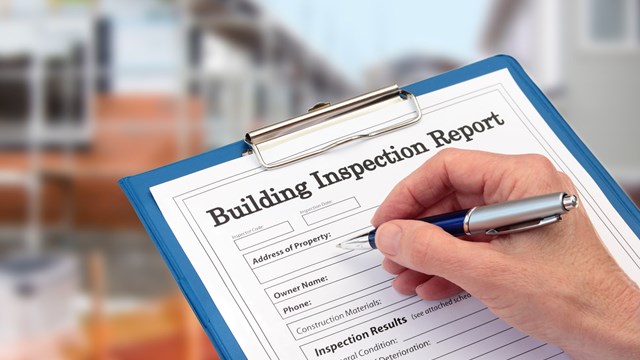One of the more complicated issues that occasionally faces an association is what to do if a homeowner becomes delinquent in paying their monthly common charges. While financial problems are a burden on the homeowner first and foremost, the effects of their late or missing payments unfortunately stretch far beyond their personal budgetary problems. Delinquencies can have a serious effect on the community's upkeep and economic future. Homeowners' bad debt can force common charges to be increased to make up the deficit, and in turn, this debt can negatively affect the association's credit rating.
"Most associations have established a credit rating, and at some point they may need to take out a loan for a capital project," said Gary B. Rosen, CPA and director of the community association practice at the law firm of Wilkin & Guttenplan, P.C. in East Brunswick. "A low credit rating may affect their ability to get a loan. Ultimately, the bad debt also affects the marketability of the community. If you have an association with a large deficit, someone is less likely to buy a home in that community."
And there's more to it than just a declining credit rating, says Rosen. Delinquent association dues and common charges also increase the likelihood of special assessments and increased charges for the entire community—which can translate into another point against an association trying to attract new members.
Laying Out the Rules
When new association residents purchase a home, they should receive a copy of the master deed and community bylaws that clearly explain the consequences of non- or late payment of common charges. These consequences include late fees, liens on the unit, and in the worst cases, possible foreclosure on the unit.
Foreclosure, however, is the last thing anybody wants, and is thus a relatively rare occurrence. "If a resident is really struggling," says Rosen, "they should go to the board and structure a payment plan." To help economically troubled residents, Rosen continues, some associations have instituted amnesty programs that permit the homeowner to make good on their debt by a certain date and—as long as that date is met—waive any accrued late fees. Associations typically assess a homeowner an average late fee of $25 to $50 per month, but that can quickly add up.
"Some associations also wait until summer and start suspending privileges for recreation facilities," says Rosen. "The homeowner won't be able to get their badges to use the pool or the tennis court. Election time is another good time to try and have the homeowner pay their bill, because they often aren't allowed to vote unless they are paid up."
Friendly Reminders
Although consumers commonly receive phone calls when they're late with a credit card or mortgage payment, legal experts suggest that associations make a practice of using only written correspondence to contact delinquent homeowners.
"The association could call," says Arnold J. Calabrese, an attorney with offices in Florham Park, "but they need to be careful not to violate any laws regarding The Fair Debt Collection Practices Act."
The Fair Debt Collection Practices Act requires that debt collectors treat debtors fairly and prohibits certain methods of debt collection. For example, a debt collector may not contact the debtor at inconvenient times or places—such as before 8 a.m. or after 9 p.m.—unless the debtor agrees. A debt collector also may not contact debtors at work if the collector knows that the employer disapproves of such contacts. While these rules seem fair enough, Calabrese says the laws regarding debt collection can be complicated, and may lead to legal entanglements for an association if they're not careful and well informed when trying to collect arrears.
"Another problem with the phone call is that there is no documentation of the communication," Calabrese continues, "and a homeowner who is delinquent and having action taken against them could potentially challenge the association."
Taking Decisive Steps
If repeated attempts to contact a homeowner about arrears have gone unanswered, the association should contact their attorney to begin legal proceedings—including placing a lien on the unit, or possibly even foreclosing on the homeowner's property. It's common for legal proceedings to begin within four or five months after arrears have begun.
A lien is a legal claim against property that must be satisfied when the property is sold. As a result of the payment problems, the homeowners association would place a lien against the individual's unit. When the homeowner sells that unit, the proceeds from the sale are used to pay off the debt and any court costs.
"A lien doesn't get the association more cash right away, but they should be able to recover some of the money later," says David L. Ferullo, the senior audit partner and a CPA with The Curchin Group in Red Bank. "It will depend if the market value of the unit exceeds the current mortgage."
Although a homeowner cannot be evicted for non-payment, a foreclosure is a legal process by which a borrower in default under a mortgage is deprived of his or her interest in the mortgaged property. This usually involves a forced sale of the property at public auction with the proceeds of the sale being applied to the mortgage debt. "The process of collecting money usually ends before foreclosure takes place," says Ferullo. "The owner will usually sell the property or satisfy the payment."
Generally, however, the experts agree that liens and foreclosure are the last resort. Initiating formal legal action is expensive, time consuming, and makes for bad blood between neighbors. Many managing agents, accountants, and attorneys advocate taking a more cooperative route to getting a delinquent association member back on track.
Another Road
One of the more common and popular options for settling disputes—both financial and otherwise—in New Jersey is through Alternative Dispute Resolution (ADR), which is defined as a fair and efficient alternative to court adjudication that must be entered into voluntarily by all parties. Some of the more common ADR procedures include arbitration, mediation, and conciliation.
The main drawback to ADR is that it's great as a preemptive measure when an association member is at risk or just beginning to slip, but isn't as feasible a means for the association to obtain payment for delinquent fees.
"The ADR doesn't really apply to the requirement of paying maintenance fees," says Calabrese, "but it can certainly be applied if there is a dispute as to why the homeowner isn't paying the fees. I'm an advocate of ADR—it's worth trying almost anything, I think, to get people to adhere to requirements, as long as it doesn't incur additional costs for the association."
Protect Thyself
In addition to dealing directly with delinquent members, there is another side to the coin as well, says Ferullo. Associations may not be able to prevent these delinquencies from occurring, but they can take steps to protect their budget from the sudden lack of funds that delinquencies create.
"If an association doesn't budget for potential delinquencies," says Ferullo, "they're fooling themselves. For example, if $6,000 doesn't come in one year, the association budget is short. Next year when they complete the budget, the board will raise fees to recover that deficit. To avoid this, associations should add a budget line for potential bad debt expense, calculate what they think they won't get, and budget the money to cover it."
Fortunately, if there is no bad debt in a budget year, or funds are collected from a previous year's arrears, the association can use the surplus funds for another purpose. For homeowners, experts say the bottom line to preventing any delinquencies is communication. Contact your association as soon as you see that you might have a payment problem, says Ferullo, and do not ignore any letters that are sent to you.
"Board members are residents of the community and neighbors of yours—they should recognize that you may have lost your job, fallen on hard times, or had an illness where the breadwinner can't work," adds Rosen. "Most boards are willing to work out a repayment plan. When their letters are ignored, however, they get upset - and that's when legal action starts."
By keeping the lines of communication open, you can avoid any unnecessary and complicated legal proceedings and protect your credit and the credit of the association.
Lisa Iannucci is a freelance writer living in Poughkeepsie, New York.







Leave a Comment